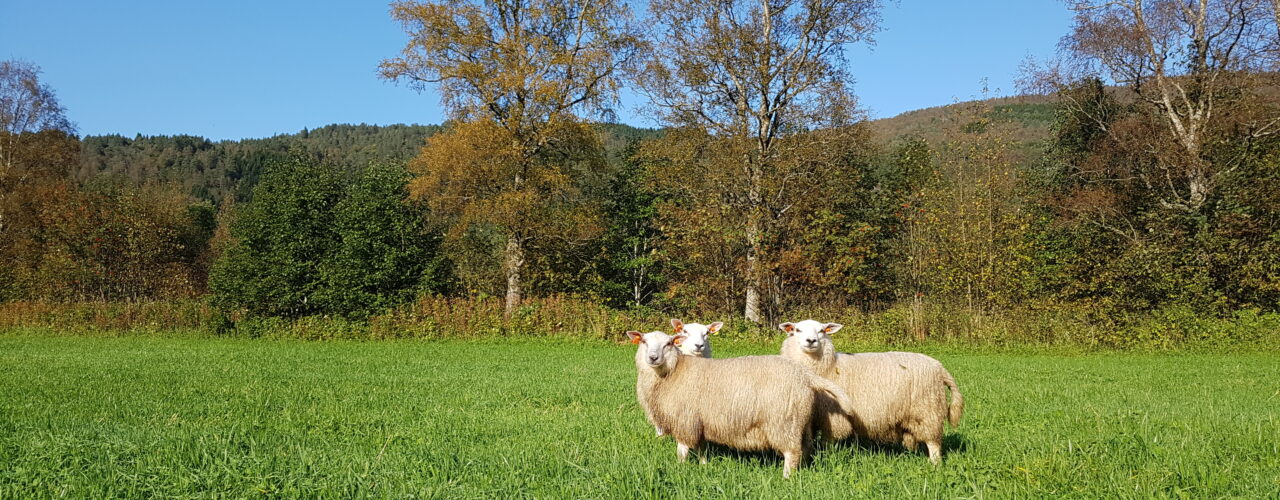
Is there a connection between lamb loss on pasture and genetics?
The project "Local breeding goals for more robust sheep" aims to investigate whether there is a correlation between disease, lamb loss on pasture, and the genetic makeup of the animals. It explores the possibility of further research into developing local breeding programs and strategies to reduce losses and suffering among the animals.
Local and national breeding goals
Breeding goals are largely national and often overlook the interaction between genes and the environment over time. Recent research indicates that traditional breeding goals for high production may not necessarily be the best for sheep farming in open pasture areas. More research specifically on sheep is needed. We have selected several typical municipalities in Møre og Romsdal with significant losses and varied disease patterns and causes of loss. Data will be collected over multiple years from both sheep monitoring programs and farmer records. These data will undergo statistical analysis to identify correlations between disease/survival, environmental factors, breed, or specific genetic lines within breeds.
Why investigate connections between loss and genetics?
If we identify such connections, it will provide a basis for further research in a larger project involving national and international expertise in genetics and breeding. The current project will be conducted by NORSØK in collaboration with local agricultural organizations, and we will engage an expert group in breeding and genetics to participate in the analysis and evaluations. The participants in this expert group and their organizations will be potential collaborators in a potential main application.
